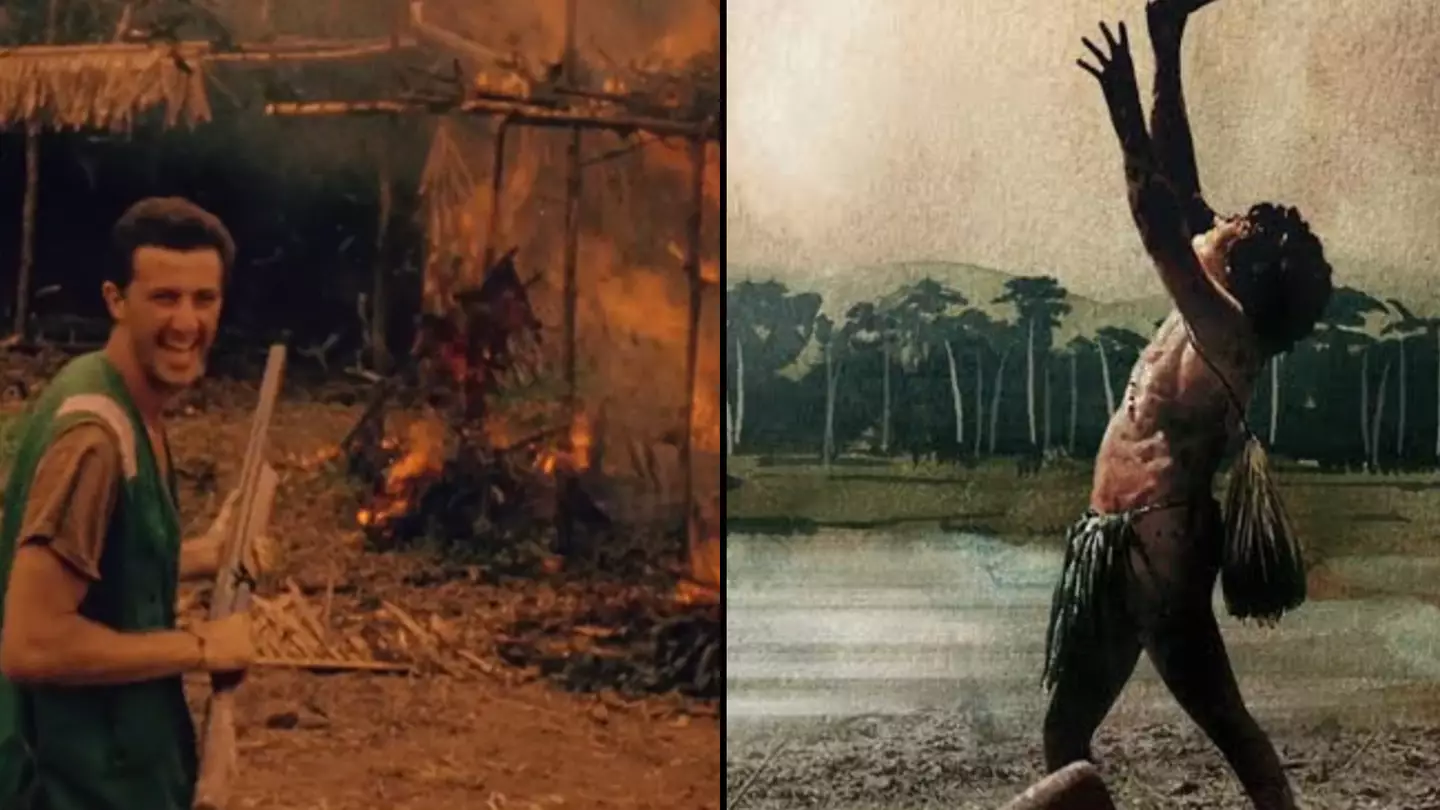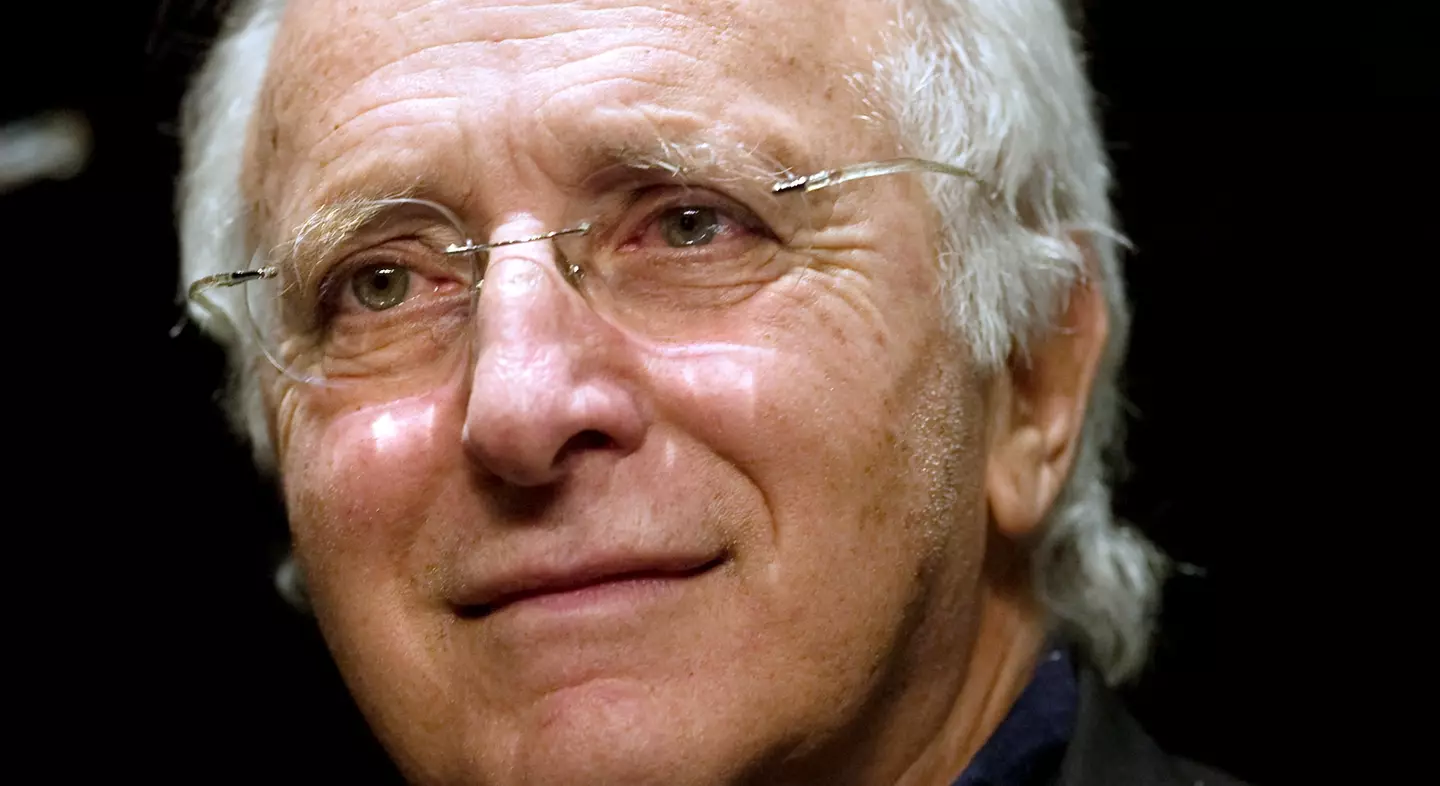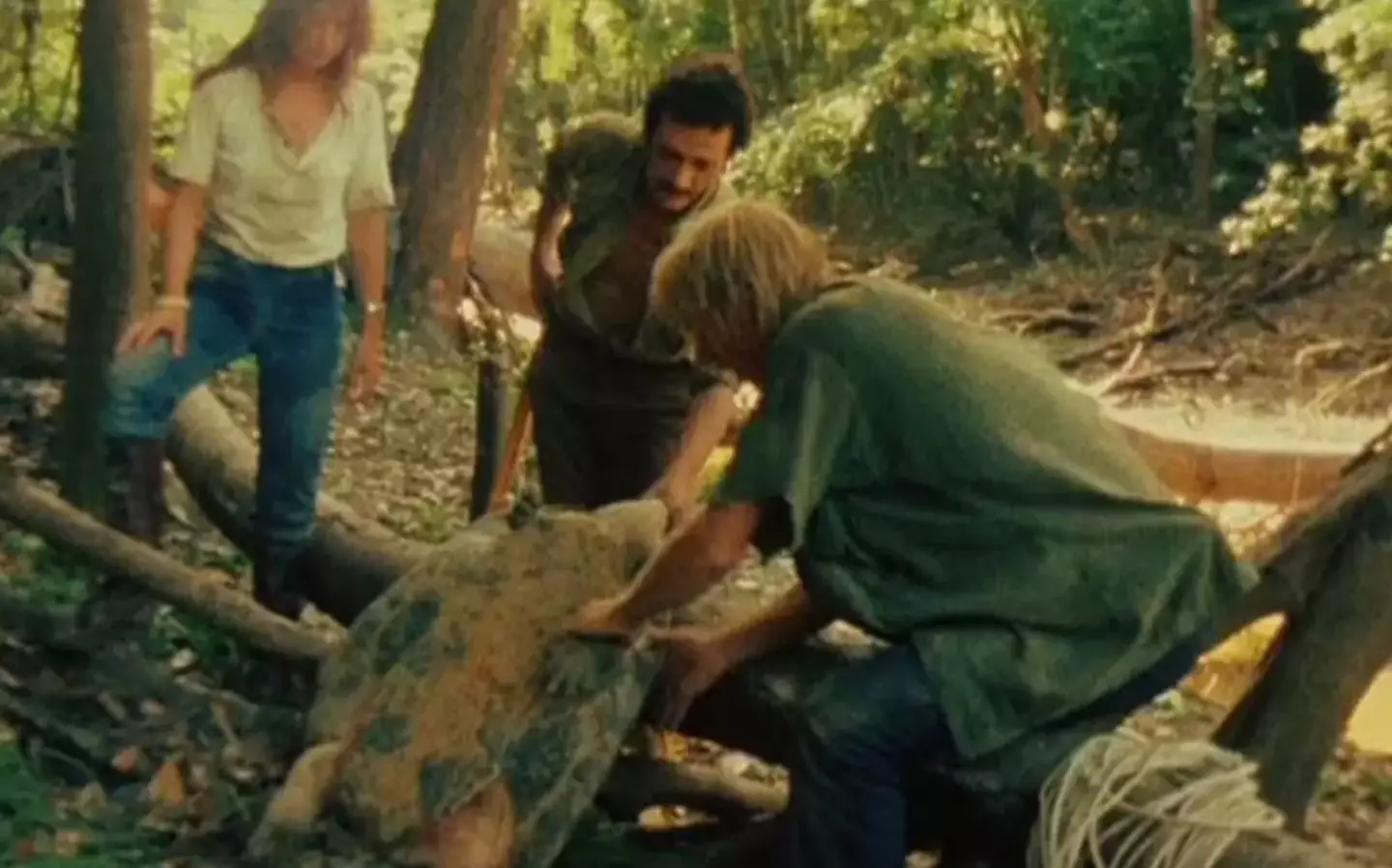
There are truly some horrific horror films out there - like, ones so gory and gross they're physically hard to watch.
From 2009’s The Human Centipede to 2022’s Fresh, the list goes on. But one film was so realistic, scenes were banned, and the director was charged with murder.
Ruggero Deodato’s 1980 film Cannibal Holocaust is perhaps one of the most disturbing horrors of all time.
Advert
The Italian flick follows an American film crew who disappeared in the Amazon rainforest while filming a documentary about indigenous cannibal tribes.
But due to the documentary style and the use of real indigenous people as actors, a lot of viewers really thought the on-screen deaths were actually real.
And this was made even more believable as Deodato ordered that the actors who died in the film would sign a contract to stay out of all media. They weren’t to partake any interviews for at least a year, in order to really convince the public they were actually dead.
But 10 days after the super-violent film premiered in Milan, Cannibal Holocaust was confiscated, and the director was charged with obscenity.
Advert

The film was released theatrically in France the next year, and the actors from those intense death scenes still hadn’t been seen in the public spotlight.
So as speculation grew that they really were dead, Deodato was also charged with murder in Italy.
He eventually contacted one of the actors, Luca Barbaereschi, who was ‘decapitated’ on screen and he was able to get in contact with some of the other ‘dead’ actors.
Advert
Appearing in court, Deodato explained that despite the fact the film contained scenes of rape, murder, torture, salacious sex, genocide, castration and even news footage of real-life executions, the disturbing horror film was made without harming people.
Barbareschi and the three others who played the ‘deceased’ camera crew, appeared on an Italian TV show together to prove they were in fact alive.

However, Deodato still faced some other issues because although the human deaths may have been fake, but Cannibal Holocaust contained genuine footage of animals being slaughtered - including the beheading of a monkey with a machete.
Advert
The director, the producers and screenwriter were all found guilty of animal cruelty. Each of them were given a four-month suspended sentence. The verdict was overturned in 1984.
Deodato defended the animal cruelty scenes in an interview with the Guardian in 2011: “In my youth, growing up, I spent a lot of time in the country close to animals and therefore often seeing the moment of their death…
“The death of the animals, although unbearable – especially in a present-day urban mindset – always happened in order to feed the film’s characters or the crew, both in the story and in reality.”
The film was banned in Italy and numerous other countries due to its portrayal of graphic scenes of brutality, sexual assault and despicable violence toward animals.
Topics: TV and Film
